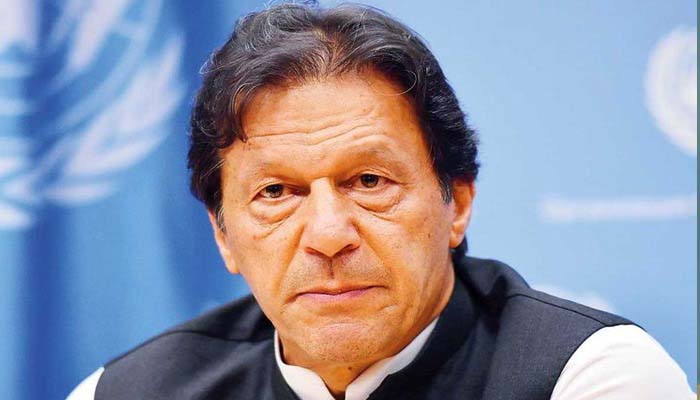Government decides to assist people who earn less than Rs25,000 in buying rations
Government decides to help people who earn less than Rs25,000 a month in buying wheat, sugar, pulses and other food rations
March 02, 2020

ISLAMABAD: The federal government decided on Monday to help people who earn less than Rs25,000 a month in buying food rations.
In a meeting of the federal cabinet chaired by Prime Minister Imran Khan, it was decided that the government will help people earning less than Rs25,000 a month by buying wheat, sugar, pulses and other food rations.
Read more: Will not relent until those involved in artificial price hikes are not punished: PM Imran
The prime minister was provided a briefing on all the government's departments. He directed the government to allocate an amount exclusively for helping people buy rations in the next budget.
The proposal was scant on details as to how the government will assist people in buying food rations. During the meeting, the prime minister reportedly said that the incumbent government will support those who were struggling to make ends meet.
He said that the setting up of Panah Gahs and soup kitchens was evidence of the government's resolve to help the poor and destitute. PM Imran appreciated the private sector and individuals who had partnered with the government to provide relief to the poor.
Taking to Twitter, the prime minister praised the cabinet's decisions, crediting them with reducing inflation in February as compared to January.
"Good to see Cabinet decisions to reduce inflation, incl subsidy on products through Utility Stores, starting to bear fruit. Inflation rate for Feb shows decline by more than 2% versus Jan. We will continue pursuing measures to bring down inflation & reduce burden on citizens," he tweeted.
The government has been under fire from critics and even some members of the PTI as well for failing to control the sugar and wheat crisis.
Inflation in Pakistan during January 2020 was the highest recorded since December 2010, according to a research by the United Kingdom-based financial forecasting and advisory group Economist Intelligence Unit.
The research further indicated that the rise in the prices of everyday items during the first month of 2020 was higher than expected, and led to a rise in inflation across Pakistan, breaking a decade-old record in the process.
Read more: How the wheat crisis unfolded across Pakistan
Prices of sugar and wheat skyrocketed in January after supply problems came to the fore. A report sent to the prime minister had revealed that senior politicians and officials had created the artificial crisis.
PM Imran has, on numerous occasions, promised that those involved in the wheat and sugar crisis will be strictly punished.











